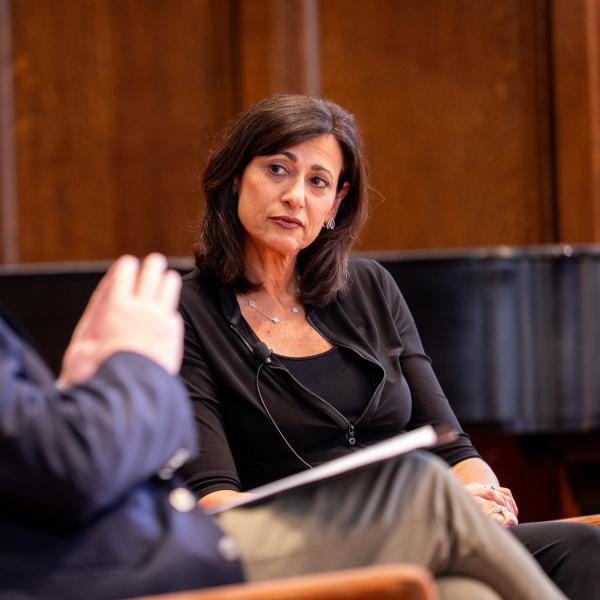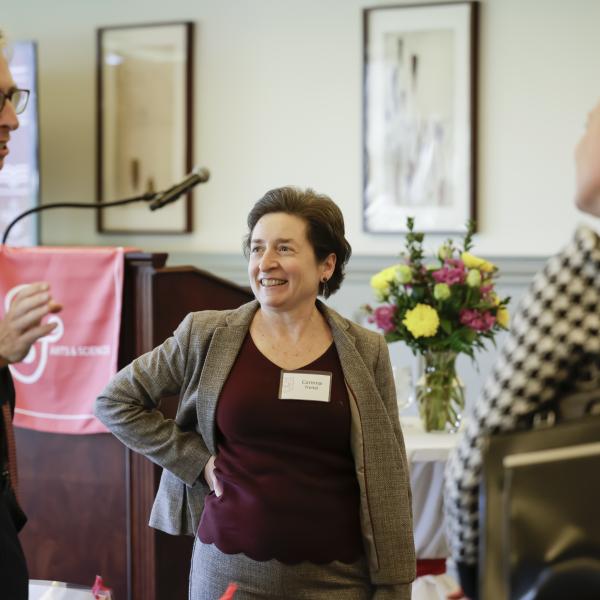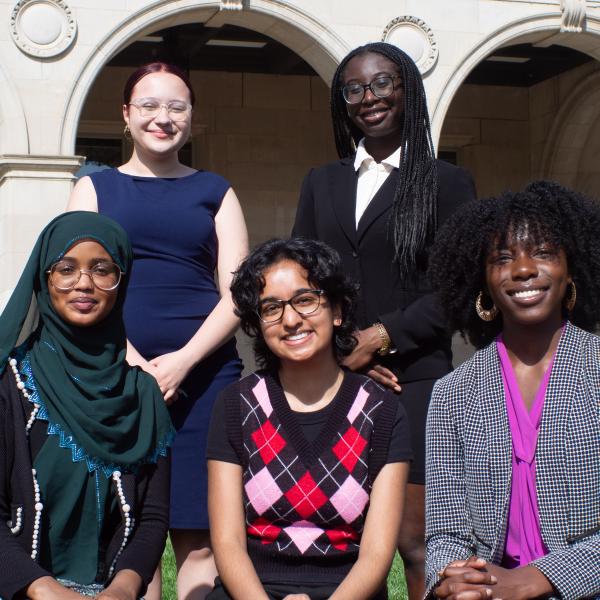At the beginning of this academic year, Zoe Stamatopoulou joined the classics department. We asked her about her work, what it's like to teach Greek, and what brought her to WashU.
Your most recent book is Hesiod and Classical Greek Poetry. What's one thing that you wish everyone knew about Hesiod, or one of his works that you wish everyone would read?
What a great question! Hesiod is a relatively obscure Greek poet, largely due to the fact that Homer, his contemporary, tends to get all the attention. The few who are familiar with Hesiod know him probably through his Theogony, a poem recounting the birth of the gods and how Zeus became the ruler of the world, or through his Works and Days, a didactic poem in which Hesiod admonishes his brother to be just and make an honest living. I wish more people would take the time to read Hesiod’s Shield of Heracles, a short hexameter poem about the clash between Heracles and Cycnus, the murderous son of Ares. Between the gruesome imagery of Heracles’ shield and his brutal victory against not only Cycnus but also the god of war himself, this short poem reconstructs the world of Heracles as a violent and dangerous place.
What do you enjoy about teaching "Beginning to Greek I"? What are some of the challenges in teaching Greek to new learners?
Teaching Beginning Greek I is always an exciting challenge. I enjoy helping my students tackle the difficulties of this ancient language and develop the skills necessary to read ancient authors in the original text. There is nothing more satisfactory than guiding my students through their first Platonic passage! Greek requires hard work, but reading great pieces of literature, such as Homer’s Iliad and Sophocles’ Oedipus Rex, in the original language is extremely rewarding.
Is there a particular project or question you're excited about right now?
Currently, I am exploring how Greek literature of the 1st and 2nd c. CE envisions and reconstructs the Greek past, especially the intellectual and political landscape of the 6th c. BCE.
When did you first know you wanted to become a professor of classics, and what eventually drew you to WashU?
As a kid, I loved reading the Iliad and the Odyssey in translation, but it wasn’t until I started learning ancient Greek in middle school that I got hook on Classics. By the time I enrolled at the University of Athens as an undergraduate, I knew I wanted to pursue the study of ancient Greek and Latin literature for the rest of my life.
I have always found it important to be part of an institution that acknowledges the value of the Humanities and promotes high-quality teaching along with cutting-edge research. In addition, Washington University has one of the most dynamic and ambitious Classics programs in the country. When the job offer came, I jumped at the opportunity immediately! I’m also very excited to live in a city again and so far I have enjoyed exploring St. Louis very much.



